The necessity and legality of re-summoning the dissolved parliament during pandemic
By Vijaya Niranjan Perera, President’s Counsel
Despite the daily statistics showing the number of infections and the death-toll of the Covid-19 pandemic on a national and international scale, the people’s focus is on the issue of re-summoning Parliament -- a dissolved Parliament. That is purportedly to sort out various issues involving measures taken by the Government to curb the spread of the virus, the costs incurred and needed for same.
The apparent generous gesture of seven opposition parties making a written request that the President use the powers conferred upon him under Article 70 (7) of the Constitution of Sri Lanka to re-summon the dissolved Parliament to discuss and sort out the urgent issues involved has been publicly rejected by the President in the Media. The Prime Minister’s conciliatory gesture of summoning “all members of the dissolved parliament took place on 04th May, 2020 but without the main opposition elements (UNP, JVP and SJB) akin to “playing Hamlet without the Prince of Denmark”.
It is an indisputable fact that the Government responded positively and immediately to the pandemic situation and did a wonderful job in curtailing the spread of the viral disease and containing the affected rate to 3% and the death toll to a mere 0.1% of our population.
But, even this low rate of infection and deaths could have been avoided if the Health Minister accepted the suggestion of closing the airports in mid-January, like New-Zealand had done and succeeded when the first signs of the epidemic was visible.
Here the issue is – How was this done? at what expense? with what agonizing and detrimental side effects to the people at large? can the country recover from the drastic recession it has suffered? This is yet to be seen.
Purportedly, all what was done by the State was under the provisions of “Quarantine and Prevention of Diseases Ordinance” which was put into operation by the Minister (Pavithra Wanniarachchi) by Gazette Notification No: 2167/18 dated 20th March 2020. She brought into operation the Quarantine Regulations of 1960 published in Gazette No: 7481 dated 06th May,1960 by naming “Covid 19” as a “Quarantine Disease”.
All preventive measures attempted and taken by the State included among other measures, imposition of “curfew” in danger areas, isolating and “locking down” certain cities, towns and villages, social distancing and causing all working people to work from home. The people silently obeyed and suffered; but working from home has proved to be a failure.
The Regulations that were purportedly put in force were under Sec 3 of the above Q.P.D.Act which included among other measures of medical treatment,
(c) for prohibiting or regulating the loading of persons or goods from aircraft, vessels or boats either absolutely or conditionally.
(g) for isolating all cases of disease and diseased persons,
(z) for prescribing the mode of burial or cremation.
(l) for the removal of diseased persons to hospitals or other places for Medical Treatment and for their detention until they can be discharged with safety to Public.
(2) … and such other powers to make regulations to carry out the objectives of this Ordinance.
Therefore, obviously social distancing, quarantining and isolating (or locking down) special areas are well within the powers of the minister and state officials implementing the regulations.
But, the imposition of “curfew” at given times in specified areas and imposing same throughout the island during specified days and specified hours of the day- poses serious issues with regard to its legitimacy.
Imposition of curfew has been done without proper legal authority. It was done without the proclamation of a “State of Emergency” by the President in terms of Sec 5 of the Public Security Ordinance.
The President, acting under Art 33 of the Constitution has issued a Presidential Directive by Gazette No. 2168/8 dated 26th March, 2020, appointing a presidential task force to direct, co-ordinate and monitor the delivery of continuous services for the sustenance of overall community life. Subsequent directives have been issued by the Minister from time to time when the necessity arose for storage of grains etc….
But, the most important issue is, could any person or authority impose on the people, what is termed “CURFEW” thereby restricting their Fundamental Right and Freedom of Movement and continuing their gainful employment or business guaranteed by Art.14 of the Constitution?
The word ‘CURFEW’ is nowhere to be found in the Constitution nor in any one of the relevant Acts claimed to be implemented including the QPD Ordinance.
It is mentioned and defined only in Section 16 of the Public Security Ordinance for the imposition and operation of which the President has to proclaim a State of Emergency under Sec 5 of the Public Security Ordinance.
Though it is termed ‘Police Curfew” and referred to as “Quarantine Curfew” by the A.G; even the IGP cannot impose a curfew in the above manner at specified places and specified time thereby curtailing and restricting the movement of people, especially from their home to workplace or business place where they earn a living.
Even though the Constitution provides in Art 15(5) &(6) that in the Interests of National Economy the Fundamental Rights declared and recognized by Art 14(g) (engaging in any lawful occupation, profession, trade, business or enterprise) or Art 14(h) (Freedom of movement and of choosing his residence in SL) can be restricted only to the extent it is necessary.
The restrictions can be imposed only to the extent that is necessary only in the interests of “National Economy”. Though the coronavirus has taken a heavy toll of the National Economy almost emptying all the Government’s resources leaving a collapsing economy, the commonly accepted stance is that this Covid-19 virus has caused a grave danger to “Public Life” and thereby to “Public Security” which the Government has to safeguard at any cost.
It was decided by a divisional bench of 5 judges in the S.C in the famous case of Joseph Perera Vs AG & Others (1992) 1 SLR page 199 ;
The SC held;
“…Art 155(2) of the Constitution empowers the President to make Regulations overriding, amending or suspending the operation of the provisions of any law EXCEPT THE PROVISIONS OF THE CONSTITUTION”.
….Thus, the President’s legislative power to making Emergency Regulations is not unlimited.
… It is not competent for the President to restrict via Emergency Regulations, the exercise and operation of the Fundamental Rights of the Citizen beyond what is warranted by Articles 15(1) to (8). The grounds of restriction specified in the limitation Art(15) are exhaustive and any other restriction is invalid….”
Although Sec 6 of the Public Security Ordinance may provide for empowering such authorities or persons specified in the Emergency Regulations to make appropriate orders and necessary rules, the Acting IGP has not been authorized or delegated any such power to make the announcement of imposing the “Police Curfew” on 20th March 2020. (By then, the Minister of the Health had not even named any Authority to implement the QDP Ordinance, which was done only on 25th March 2020.
This being so, the practice suggested that only the persons having the last digit member in their personal Identity Card should step out of the house only on the assigned day of the week is an absurd idea and a crazy humourless joke.
Some eminent President’s Counsel have advised the President that there is no necessity of re-convening the dissolved Parliament and there is no necessity of declaring a State of Emergency and take those measures there under as the country is not at ‘WAR’ and these are adequate laws in force to tide over the situation.
The country is definitely at war — not against a visible enemy but an invisible enemy the coronavirus causing more panic, mayhem and fatalities, than a conventional war with an invading enemy.
However, when the President declares a State of Emergency the Parliament is thereby automatically summoned, and in this present context where Parliament is separated by such adjournment or prorogation which will continue for 10 days, then a proclamation shall be issued for the meeting of Parliament within 10 days. This is provided for in Section 2(3) of the Public Security Ordinance.
“The President of SL is obliged to officially Gazette the imposition of curfew and refer the details of such Gazette to Parliament to determine the future course of action.
As Parliament is now dissolved, he has to do so by reconvening Parliament, which special power is conferred on him by Art 70(7) of the Constitution.
Art 70(7) says;
“If at any time after the dissolution of Parliament the President is satisfied that an Emergency has arisen of such a nature that an earlier meeting of Parliament is necessary, he may by Proclamation summon the Parliament which has been dissolved to meet on a date not less than 3 days from the date of such proclamation, and such Parliament shall stand dissolved upon the termination of the Emergency or the conclusion of the Election, whichever is earlier.”
The last phrase is the operative phrase – It shows that this provision is meant solely for the purpose of re-convening Parliament discussing and sorting out the issues in dealing with the Emergency and also having the necessary funds approved for the measures taken.”
This provisions is not intended, nor can it be used by anybody in anyway to consolidate the power of the dissolved Parliament directly or indirectly.
The fears and doubts expressed by the Government on such request made by Opposition Parties are baseless.
In any event, for the imposition of curfew in whatever form require the convening or re-convening of the dissolved Parliament to legally extend, relax and re-impose the curfew.
There is yet another important aspect involved in the crisis which has to be ultimately dealt with by Parliament.
After the resignation of former Government of Prime Minister Ranil Wickremesinghe following his party’s defeat at the 2019 November Presidential Election, Prime Minister Mahinda Rajapaksa’s Government and cabinet was formed, but no Budget proposals were moved and approved by Parliament as yet. In the present circumstances, it cannot be anticipated that in the foreseeable future, elections will be held, parliament assembled and budget moved and approved.
The Government was cash-strapped and compelled to put on hold all major projects. In spite of this critical Financial situation, the Government purportedly aiming to spur economic growth granted tax concessions to please the masses by removing the PAYE Tax , NBT Tax and reducing VAT.
As the money already allocated on Vote on Account which was almost expended at the end of November, 2019, the Government moved to amend the Vote on Account and sought to increase the debt ceiling from Rs. 721 Billion to Rs.1,078 Billion to settle bills of completed projects. However, the Government was compelled to withdraw this motion due to the lack of majority in the former Parliament.
This was prior to the spread of the coronavirus worsened the economic plight of SL and caused a continuous outflow of Rs.19.6 Billion in just two weeks of the Covid-19 pandemic.
Former Finance Minister Mangala Samaraweera warned;
That President has no power under the existing Constitution to approve any Vote on Account or for the withdrawal any monies from the Consolidated Fund. which is within the sole power and jurisdiction of Parliament under Art.149 & 150.
However, there is provision for creation of a Contingency Fund providing for urgent and unseen expenditure, but such fund also has to be created by Parliament (and not by the President) though the Minister of Finance with the consent of the President can operate same.
When the urgent need arises due to an emergency in a situation where Parliament is dissolved, and election date fixed, the President can withdraw monies necessary to meet the urgent unforeseen situation upto 30th April, 2020 (3 Months) if no previous provisions therefor has been made by Parliament at the time it was dissolved.
However, such power of the President is also limited to cover salaries and emoluments of State Employees and maintenance of essential State Services (Art. 150 (3) & (4) of the Constitution.
Therefore, the proposed estimated expenditure of Rs.150 Billion cannot be for the above purpose and hence any such withdrawal from the Consolidated Fund without the approval of Parliament would be a violation of the Constitutional Provisions which could form the basis of any future impeachment of the President.
Therefore, as the foregoing persuasive reasons compel, the re-convening of the Dissolved Parliament is necessary, warranted and perfectly legitimate.
-
Still No Comments Posted.



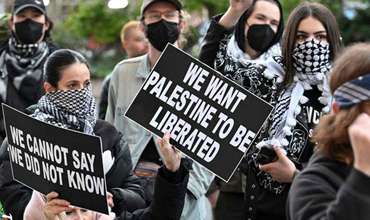
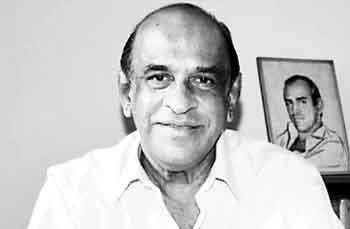
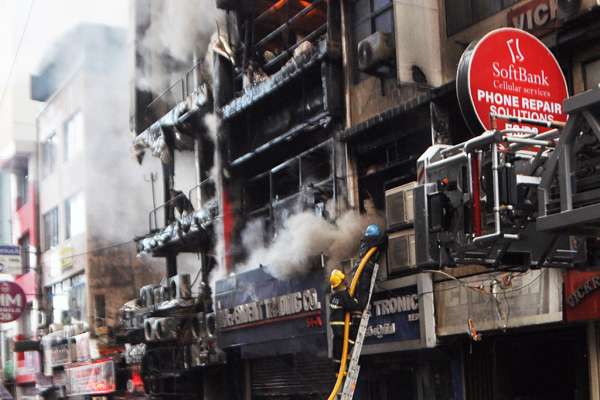
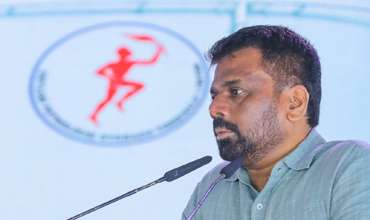
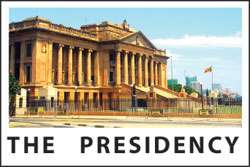
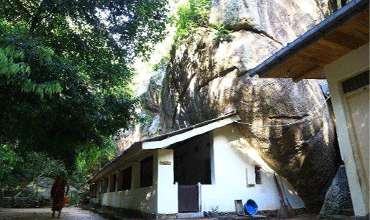
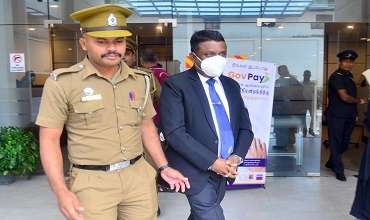
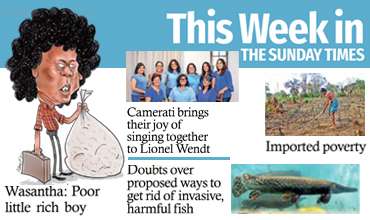
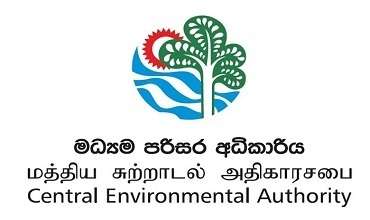
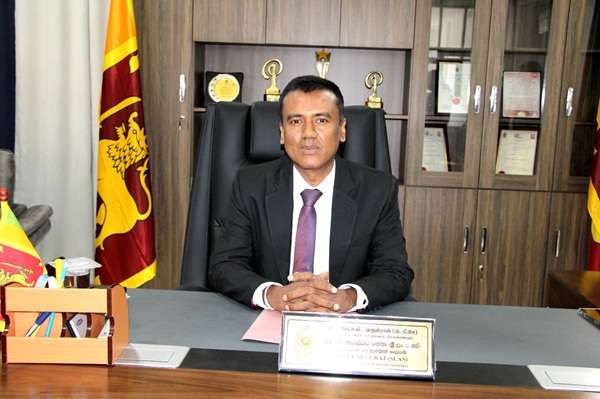
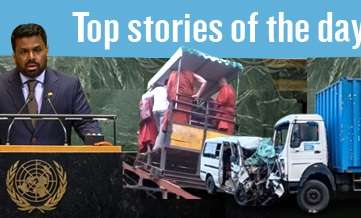
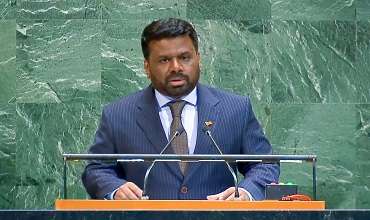
Leave Comments